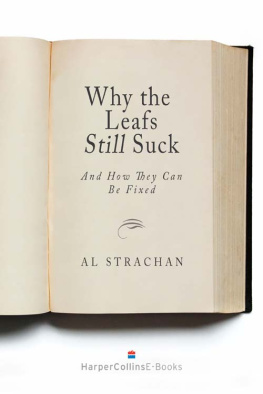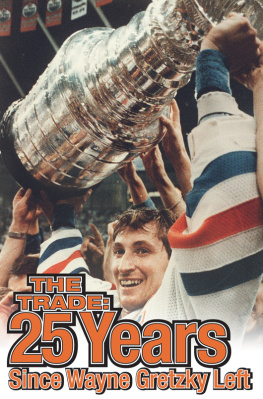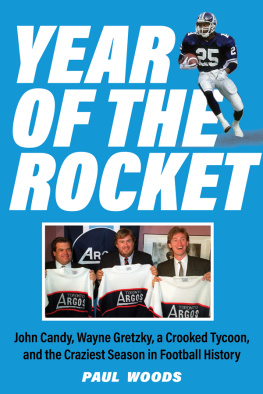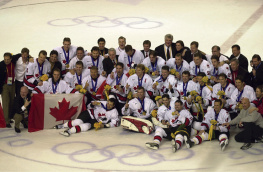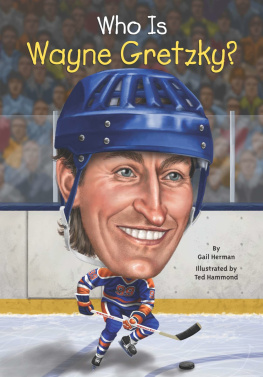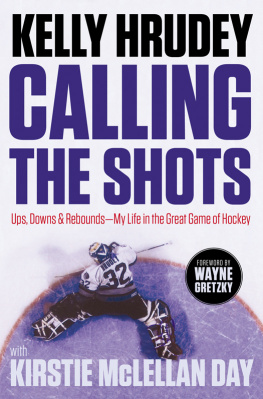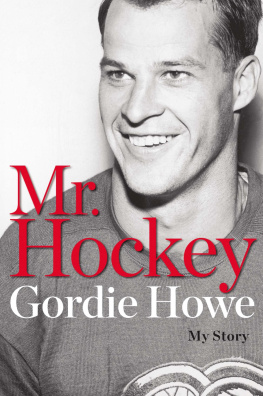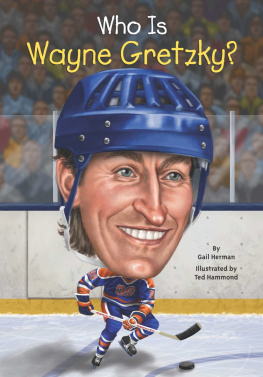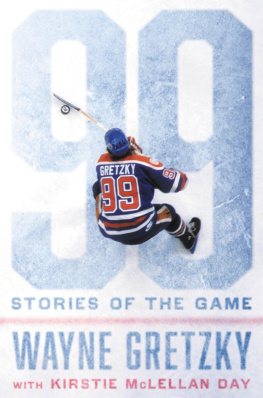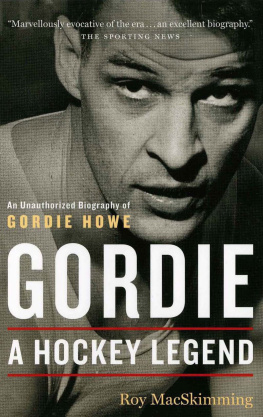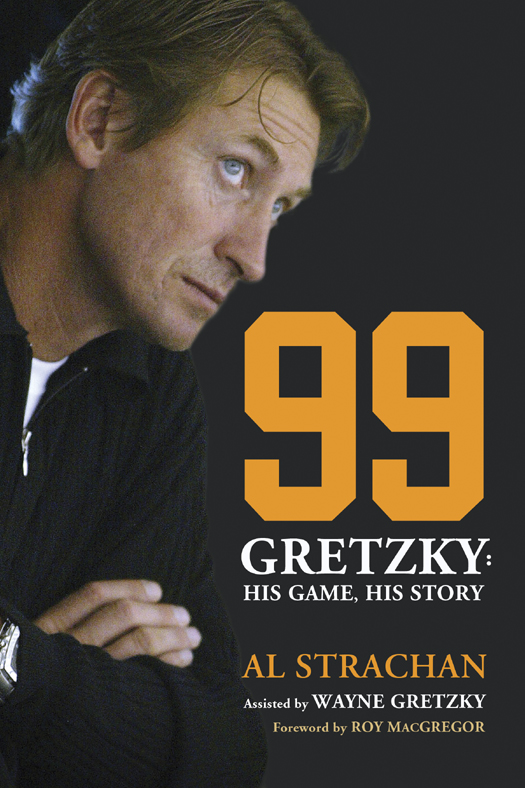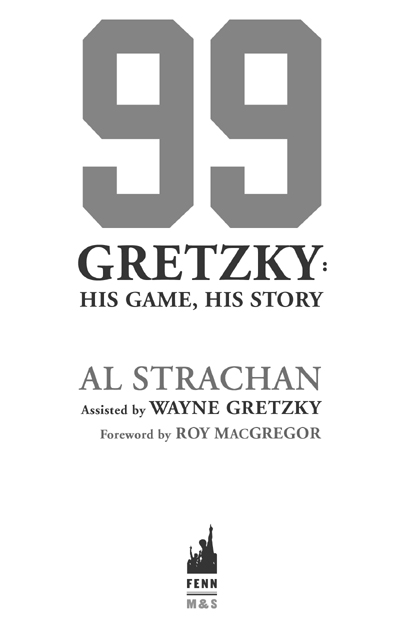Also by Al Strachan
One Hundred Years of Hockey: The Chronicle of a Century on Ice
(with Eric Duhatschek and Rjean Tremblay)
Go to the Net: Eight Goals That Changed the Game
Don Cherrys Hockey Stories and Stuff
(as told to Al Strachan)
Why the Leafs Suck and How They Can Be Fixed
I Am Not Making This Up: My Favourite Hockey Storiesfrom a Career Covering the Game
Over the Line: Wrist Shots, Slap Shots, and Five-Minute Majors
Don Cherrys Hockey Stories Part 2
(as told to Al Strachan)
Copyright 2013 by Al Strachan
All rights reserved. The use of any part of this publication reproduced, transmitted in any form or by any means, electronic, mechanical, photocopying, recording, or otherwise, or stored in a retrieval system, without the prior written consent of the publisher or, in case of photocopying or other reprographic copying, a licence from the Canadian Copyright Licensing Agency is an infringement of the copyright law.
Library and Archives Canada Cataloguing in Publication
Strachan, Al
99: Gretzky: his game, his story / Al Strachan;
foreword by Roy MacGregor.
eBook ISBN: 978-0-7710-8325-9
1. Gretzky, Wayne, 1961-. 2. Hockey players Canada Biography.
3. Hockey coaches Canada Biography. I. Title.
II. Title: Ninety-nine, his game, his story.
GV848.5.G78S77 2013 796.962092 C2013-900689-3
Library of Congress control number: 2013931565
Fenn/McClelland & Stewart,
a division of Random House of Canada Limited
A Penguin Random House Company
One Toronto Street
Toronto, Ontario
M5C 2V6
www.randomhouse.ca
v3.1
For the lovely Vivienne
FOREWORD
By Roy MacGregor
Come on! youll have a great time!
And I did. It was late fall, 1994. The National Hockey League owners had just locked out its players in what would, over the years, become a virtual ritual, but this was the very first and, without Twitter and endless talking-head panels, there wasnt much for hockey journalists to do but wait it out and find something else to fill in the time.
Al Strachan suggested I join him and a handful of other hockey writers Tony Gallagher of the Vancouver Province, Kevin McGran of Canadian Press (now with the Toronto Star) who were going to follow Wayne Gretzky on a barnstorming Grand Tour of Europe. The Ninety-Nine All Stars, put together by Gretzky, his agent Mike Barnett and (I would not know until I read this book) Al Strachan, would play exhibition matches against club teams in Finland, Sweden, Norway and Germany. Strach was going for the Sun chain. I was then with the Ottawa Citizen, part of the then-powerful Southam empire. If hockey superstars like Gretzky, Brett Hull, Mark Messier, Paul Coffey, Steve Yzerman and Sergei Fedorov were going to be wearing jerseys rather than suits and playing real games rather than head games, then Southam certainly wouldnt want the Sun to own it. They happily agreed that both Tony, another Southam employee, and I could go along.
Strach, whom I did not know very well then, was far more welcoming than I had expected. I knew his reputation for caustic remarks and quick dismissals but I had to learn for myself that the sarcasm and jibes come with such joyous wit that he is, in fact, a delight to be around. I knew he and Tony had long been friends but I had no real concept of how close he was with Gretzky, the organizer, funder and main attraction of the trip.
At first, this bothered me, as Im sure it bothered others. Strachan, and Tony, as well, had an access that McGran and I simply could not match. Neither of us had covered Gretzky in his heyday, as both Tony and Al had. The worry proved completely unfounded, as Al made sure that each game was run roughly as real NHL games were, with a semi-formal scrum with Gretzky and other players at the end of each match. The rest of the time, we all travelled together as one delightful group, sightseeing during the days and playing exhibition games several of them excellent at night. The travelling band included various wives and girlfriends and several of the players took along their fathers, including the incomparable Walter Gretzky. Sergei Fedorov, perhaps because his father wasnt available, brought along a stripper.
This was my first real encounter with Gretzky and the friendship that began on that trip eventually became a partnership after his retirement in 1999. The National Post had started up just the year before and, wanting to make a big splash in sports, arranged for Wayne to write a weekly column for them. He agreed but asked that I, having transferred to the Post from the Citizen, assist him with it. I then got to know the Wayne Gretzky that Al Strachan knew and admired though I would never know him as well as Al.
The incredible friendship between the games greatest player and the games most controversial commentator was something to behold. Gretzky is renowned for his diplomacy on all matters concerning hockey. He has always been careful to avoid controversy, endlessly polite and quick to offer the benefit of the doubt. Not so Strach. Al is one of those people with no built-in governor. He says whatever he is thinking, and usually in a low-but-penetrating voice that is impossible not to pick up. Most people built like that, though, are not very bright and could well use a governor. Not Al. He is one of the brightest brains in sports journalism erudite, well-read, with an incredible grasp of history and events. His politics might make some cringe, but if they wish to debate him they had better know their file because he will rip it to shreds.
Those who get to know his humorous side, however, soon come to treasure it. He can be hilarious. I sometimes think this is why Gretzky is so fond of him. Al not only knows his sports on a level that can keep up to the encyclopedic Gretzky, but Al is more than happy to say, aloud, things that Gretzky might only be thinking. He also makes Gretzky laugh. At himself, as well.
Todays journalists cannot possibly get to know athletes as they once could. When Al Strachan started out, hockey dressing rooms were quiet places where reporters could sit alone with a player and chat about everything from the game at hand to the world at large. Television cameras and radio microphones were rare. Today, it is impossible to speak alone with a professional athlete. The moment his mouth opens, small hand-held recorders and iPhones press in on him to vacuum up every word, many of the recorder holders not paying the slightest attention or, for that matter, even bothering to look at the player. Whatever he says, even the most utterly meaningless the first goal is important, we have to play desperate hockey is instantly sent out on Twitter. It has made players retreat to clichs, avoid all talk that might be misconstrued. Idle chatter is a dead art.
It is because of this that this book is so telling. It is not just about feats and records though they are there, as well but about a very special relationship between a superstar athlete and a star reporter.
Wayne Gretzky and Al Strachan, both richly deserving of their rightful places in the Hockey Hall of Fame.
PREFACE
Even though Wayne Gretzky began his National Hockey League career in 1979, it wasnt until the 1981 Canada Cup that I really got to know him. Our paths had crossed a couple of times in post-game scrums, but in circumstances of that nature, you dont get much of a chance to interact.


